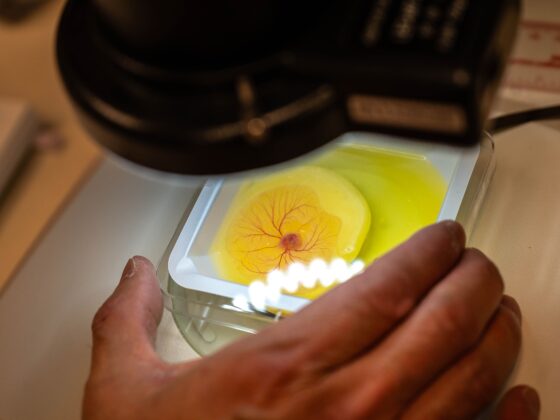Nearly one in five new cervical cancers diagnosed between 2009 and 2018 were in women aged 65 years and over. The US study, published in Cancer Epidemiology, Biomarkers and Prevention, January 9, demonstrates that relative to younger women, those aged 65 years and older present with later stage disease and have lower five-year survival. Publication of the study comes during Cervical Cancer Awareness month, coordinated by the World Health Organization (WHO), which this year focuses on ending cervical cancer by 2120.
“Our study found worsening five-year relative survival with each increasing age group category for both early- and late-stage diagnoses,” write the authors.
Through adequate screening and follow-up, cervical cancer can be prevented or detected at an early stage, leading to excellent survival. However, current guidelines (both in the US and Europe) recommend discontinuing screening for women aged 65 or older who have had a history of normal Pap and/or Human Papillomavirus (HPV) tests, with the potential to leave older women vulnerable.
In the current study, Julianne Cooley and colleagues, from the University of California Davis Comprehensive Cancer, Sacramento, reviewed information from the California Cancer Registry, which has collected cancer incidence and patient demographic, diagnostic and treatment information since 1988. Altogether the team identified 12,442 women aged 21 years and older who between 2009 and 2018 were diagnosed with a first primary cervical cancer in California.
Results showed that 17.4% of women (n=2,171) in the study were ≥65 years. Of the older women, 34.6% were aged 65-69 years; 24.7% 70-74 years; 17.5% 75-79 years; and 23.1% 89 plus years.
In this group of women, 71% were diagnosed with late-stage disease compared with 49% of women younger than 65 years. Late-stage five-year relative survival was 23.2% to 36.8% for women ≥65 years compared with 41.5% to 51.5% for younger women.
Of women aged 65 to 69 years, 60.2% were diagnosed at late stage; of women aged 70 to 74, 66% were diagnosed with late stage; of women aged 75 to 79, 70.6% were diagnosed with late stage; and of women aged 80 plus, 82.4% were diagnosed with late stage.
In multivariable logistic regression models, among patients ≥ 65 years, factors associated with late-stage disease included older age at diagnosis (increase with each additional year of age: OR=1.02; 95%CI 1.01﹣1.04) and ≥2 comorbidities (OR 1.59, (95% CI 1.21-2.08 vs no comorbidities). Other influences, such as year of diagnosis, marital status, neighbourhood socioeconomic status and urbanicity, were not found to be significantly associated with late-stage cervical cancer.
“Efforts should be made to better understand how the current screening paradigm is failing women of 65 years and older,” conclude the authors.
One of the causes, they suggest, may be due to inadequate screening in women approaching 65 years, with women citing reason for forgoing screening that including discomfort, pain, embarrassment, and intrusiveness of speculum-based examinations. Pap testing can be difficult post-menopause when cytology tests may become less sensitive (due to retraction of the squamocolumnar junction and vulvovaginal and cervical epithelium atrophy). “Prior studies have shown that nearly a quarter of women in the US are not up to date on cervical cancer screenings, and that many women who receive an abnormal screening never follow up on the results,” Cooley, the lead author, tells Cancerworld. “Therefore, it is possible that the screening guidelines are adequate, but not being followed closely enough, leading women to still be vulnerable to cervical cancer after the age of 65.”
“Since cervical cancer can be prevented or detected at an early stage when survival is excellent, it is imperative to determine a woman’s screening history before they exit the screening programme, even if they are over the age of 65,” Cooley adds. “Less intrusive cervical cancer screening options, including urine and vaginal self-testing are becoming available in some countries, which may increase adherence to cervical cancer screening.”
Incorporating innovation seems to be the way to go. A feature published in Cancerworld to mark Cervical Cancer Awareness month 2023 explores the quick outpatient’s procedure of thermal ablation, which is proving a great success in treating pre-cancerous lesions in developing countries.













1 comment
The current cervical cancer screening paradigm fails to adequately address the needs of older women, leading to gaps in detection and prevention.
Comments are closed.